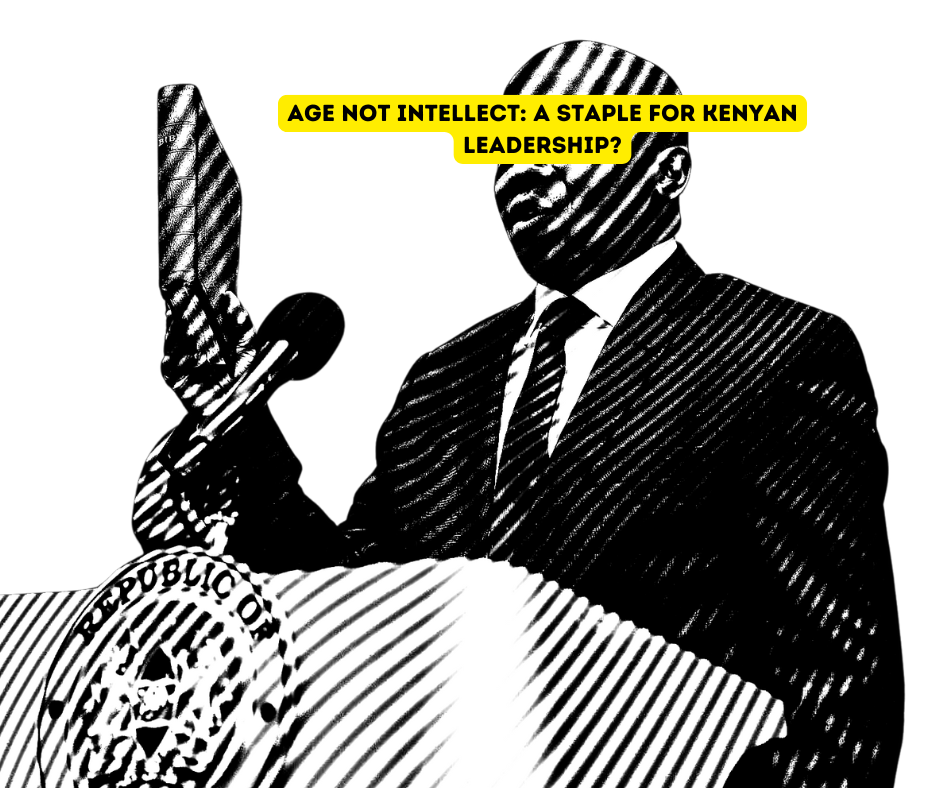Leadership was once a domain reserved for the elderly, grounded in the logic that accumulated years of observation and reflection naturally translated into wisdom. Drawing from dialectical materialism, knowledge was a progression—from sensory-perceptual experiences to abstract reasoning and intellectual maturity. In this framework, older individuals in any community held the upper hand in understanding and decision-making.
However, this tradition has evolved into an unquestioned belief that age alone qualifies someone to lead across all fields. The assumption that boomers and seniors are inherently equipped to guide society into utopia has turned out to be a tragic miscalculation. In practice, leadership by the elderly in many societies—Kenya included—has been marked more by self-interest and gratification than by service to the public good. It is particularly disheartening that some leaders in third-world countries seem to derive joy from exploitation and short-term indulgences, restricted to the shallow niches imperial powers allow them to operate in.
The Failure of Leadership Today
Despite having access to the best education money can buy and enjoying the natural benefits of experience and maturity, many of these leaders have abandoned the ideals of visionary leadership. Instead, they’ve reduced themselves to “yes-men”—obedient either to imperial powers or to higher-ranking politicians above them. Their focus is not on transforming society but on accumulating approval and wealth, with each “yes” translating to a direct deposit into their personal accounts.

Ironically, these leaders are granted every imaginable resource to enable them to focus solely on their political roles. Private jets, gourmet meals, luxury mansions—you name it. The logic behind this extravagance, we assume, is that a leader free from distractions would be better equipped to solve societal problems. After all, we wouldn’t want a jack-of-all-trades leader juggling multiple concerns, right? Yet, despite these privileges, we’re left with uninspired, unmotivated figureheads who shirk the higher intellectual demands of leadership.

Instead of engaging with the complexities of governance, they resort to cutting shady deals, evading taxes, and engaging in bribery and unfair competition. Even the creativity to generate profit within the confines of the law seems beyond their grasp. Their brains, preoccupied with personal gratification, are incapable of advancing ethical or transformative leadership.
The Pushback from the Youth
Amid this embarrassing failure of leadership, the resilience of the youth stands out as a beacon of hope. Despite the state’s immense power, the propaganda machine, and even the co-opting of some young people into its payroll, the majority remain unconvinced by hollow speeches and misguided narratives. The youth’s refusal to be silenced or bought off speaks volumes.
This pushback is a reminder that the status quo isn’t sustainable. It challenges the prevailing notion that leadership must remain in the hands of an older generation, particularly when that generation prioritizes self-interest over the common good. Their determination signals a shift—a demand for leaders who engage in the intellectual, ethical, and practical work of true governance.
Conclusion
It’s time to reevaluate what qualifies someone to lead. Leadership should not be a stage for personal gratification or a platform for exploitation. The failures of the current model are glaring, and the resistance from the youth highlights a collective desire for something better—leaders who understand that true leadership requires sacrifice, creativity, and a commitment to serving the people.
Until then, the current model will remain a tragic caricature of what leadership should be, and the youth will continue to remind us that change is not only possible but inevitable.

